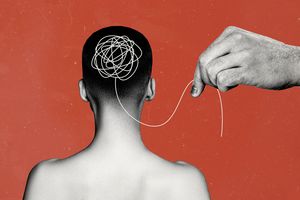Psychiatry has profound potential to heal human minds. Nonetheless, history serves as a stark reminder that, in the wrong hands, it can become a tool of abuse.
The term ‘punitive psychiatry’ refers to the abuse of psychiatric practices such as diagnosis, detention and treatment to violate human rights. In April, the International Federation for Human Rights in Mental Health and the Andrei Sakharov Research Centre for Democratic Development at Vytautas Magnus University, Lithuania, released data that showed a surge in psychiatric abuse against civilians who “exhibit anti-war behaviours” in Russia. Their study revealed that, as of March 24, at least 35 individuals were subjected to involuntary “treatment” in psychiatric facilities across Russia. Prominent among them were opposition activist Olga Nedvetskaya, medical student Alexey Korelin and teenage protester Yegor Balazeikin.
Another such case is that of Alexander Gabyshev, who embarked on a cross-country trip to Moscow’s Red Square to perform a shamanic ritual that he said would peacefully oust President Vladimir Putin. Gabyshev, too, was subjected to punitive psychiatric practices. Dissidents like him have reportedly undergone intrusive surveillance, violent threats, humiliation, compulsory medication, physical restraint and other measures that infringe on their rights.
Psychiatric abuses were a prominent tool of repression in the Soviet Union, particularly in the 1970s and the 1980s. It is estimated that approximately one-third of political prisoners in Russia were confined to psychiatric hospitals, leading to a significant rift within the World Psychiatric Association. The Soviets were compelled to withdraw from the association in 1983, and returned conditionally only in 1989.
According to Robert van Voren, a Dutch human rights activist who led the study on punitive psychiatry at the Andrei Sakharov Centre, most countries that were part of the Soviet Union have made strides in developing mental health care services based on ethical norms. But Russia, under Putin, is backsliding.
Punitive psychiatry has been in practice in other totalitarian regimes as well. Last year, a criminal court in Iran ‘diagnosed’ three prominent actresses―Azadeh Samadi, Leila Bolukat and Afsaneh Bayegan―as anti-family, antisocial and mentally ill for not wearing the hijab. Top Iranian psychologists condemned the court’s decision, and denounced the misuse of psychiatry by the judiciary. China, too, has faced accusations of employing punitive psychiatry against the Uyghurs.
Even liberal democracies have had instances of punitive psychiatry. In 2009, Adrian Schoolcraft of the New York Police Department blew the whistle on his superiors who manipulated crime reports. As a response, he was arrested and held for six days in a psychiatric ward at Jamaica Hospital Medical Center. Subsequently, he filed a lawsuit against the police department, alleging intimidation and retaliation. The case was settled in 2015, with Schoolcraft receiving $6,00,000 in compensation.


